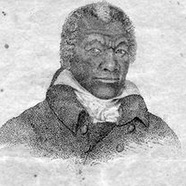Growing up in the United States in the 1960’s and 1970's, we were often told that “polite society” doesn’t publicly discuss religious, political, or sexual preferences. Race was another such topic. Today, things have changed and it seems that everything is on the table. There are those who seem to expect some sort of positive reinforcement for wearing their political, religious, racial, or sexual allegiance on their sleeve.
They feel entitled to an obligatory pat on the back, a celebratory ice cream cone, or handout, and when that reward isn’t forthcoming,
they become offended, indignant, or defensive. They become upset that their life choices or fluke
of genetics aren’t being rewarded or as impressive as they think they should be to
others.
You’re expected to embrace their world view or face being ostracized
(aka “cancelled”), shouted down, physically attacked, or worse yet, being
called a name and incredibly, they become indignant when they are the ones called out. Race and ethnicity are such topics, and ones which warrant critical examination.
Introduction
For example, when we
examine race, we find something similar in the reaction. Individuals, almost
two centuries removed, want not just sympathy for what some ancestor may or may
not have endured, but they want to be compensated for what they never
experienced. Those who look beyond color and (to quote Dr. Martin Luther King),
judge people by the “content of their character” are often considered the worst
offenders.
They give no thought to the historical fact that forced
servitude has existed since Mankind existed. Every people and every race has at
one time or another been slave and master. It’s a chain we all wear. They have
also conveniently ignored the fact that it was these same white Europeans who
all but put an end to this hateful institution or that they implemented
legislation and taxpayer supported programs balance the scale that has existed
since we roamed the African savannahs.
Equally, they’ve chosen to disavow the historical fact that
it was their brethren who betrayed them and sold them into slavery, which sadly
still continues to this day in Africa as well as parts of Asia. Perhaps the ancestors
of the person on the street they randomly call “brother” or “sister” may been
responsible for the plight of their ancestor, only to have later been caught up
in the net? Such twists of fate aren’t as uncommon as one might think. It’s
well documented that blacks owned black slaves in the U.S. or that native
Americans had slaves of all races.
Nevertheless, for some reason, they “demand” to be
compensated for what they aren’t entitled to (and arguably have already been
given). They “demand” that the people who freed their distant ancestors from bondage
must also assume some form of self-imposed “guilt” for doing so. Why is that?
Is this anger at the people who delivered them from slavery justified or is it
anger at themselves for not taking the initiative to free themselves and their refusal
to place the blame where it truly belongs?
Shouldn’t their anger be more accurately directed to those
who ensured their bondage in the first place, or is that just a little too
close to home? If there is some sort of guilt to be had, perhaps it should be
their failure to take responsibility for their own future, trading a “master”
on a plantation for a politician or bureaucrat? What of the millions of immigrants
who’ve come here from a different culture and customs, not speaking the
language, and with next to nothing in their pockets, but have adapted very
quickly?
In their anger at themselves, they lash out at others, such
as in Cincinnati a few weeks ago, violently attacking individuals who were of
no threat to them or looting the businesses of immigrants who’ve succeeded. Is
this self-loathing, reversed racialism, opportunism or a combination? Let’s set aside emotions, pre-conceived ideas, and bias in order to examine the data and see
what it can tell us.
Home and Hearth
According to the U.S Census Bureau, Whites have 50.5% of all
live births while Blacks have 13.9%. Asians and Pacific Islanders are
responsible for 6.2%. Native Americans have 0.7% of all live births, and
Hispanics make up 25%. Nevertheless, the overall percentage of White and Black
fertility rates have been in decline over the past several decades as has
Native Americans.
However, Hispanics,
Asians, and Pacific Islanders on the other hand have seen their fertility rates
increase, meaning that Asian and Hispanic populations are growing relatively
faster than that of whites and blacks. By 2050, the U.S. is expected to reach a
near racial parity with no dominate race. How that will work out remains a guess
but often cited as a key factor for an eventual (and likely) balkanization of
the United States.
A key factor in predicting the eventual success of a child
is whether or not they are born in a dual or single parent homes. According to
the Center for Equal Opportunity, Black Americans have the highest rate of illegitimate
children. According to the Center, nearly 70% of Black children---69.3%-- are
born out of wedlock. Compare that to 41.6% of Hispanics and 21.9% of Whites. It’s
59.3% for Native Americans. For Asians of Chinese origin, that number is 6.4%
while Japanese Americans it’s 9.7%.
When it comes to preschool care, Hispanic children are most likely
to receive home centered care from a parent. Black children are most likely to receive some
form of home based care from a non-parent relative (like grandparent, aunt,
uncle, etc.). White kids are most likely to receive home based care from a non-parent
or relative such as a nanny or babysitter. Children of mixed race were most
likely to receive preschool care from some sort of center (such as a daycare).
When it came to subsidized care, Hispanic and black children were most often
the beneficiaries.
The National Library of Medicine reported that Black infants
tended to have lower birth weights than other groups. They also reported than
less than 1/3 of children living at or under the national poverty rate took
advantage of programs such as Head Start, and while Head Start tends to provide
higher quality care than other centers, Black children receive poorer quality
care compared to children of other races. The reasons cited were the birth weight
(including high nutritional foods, as well a poor educational levels Black as
well as Hispanic ethnicity, especially in family care centers.
Interestingly, a 2013
study by the Centers for Disease and Prevention reported that 70% of Black
fathers who live with their kids were active in their lives compared to 60% of Whites
and 45% of Hispanics. 78% of Black fathers tended to have dinner with their
children every day while 74% of White fathers and 64% of Hispanic fathers did.
Additionally, 27% of Black fathers took their children to and from activities.
By contrast, just 20% of White fathers did. When it came to the all important homework and
childcare, 41% of Black fathers stepped up. Meanwhile, only 29% of Hispanic
fathers and 28% of White fathers helped out.
Education
Some additional statistics along the same lines that I found
was that 68% of Asians have a bachelor’s degree or higher. That compares to
just 25% of Hispanics and 44% of Whites. On the other side of spectrum, just 4% of
Asian had less than a high school diploma. Only 5% of Blacks didn’t have a high
school degree along just 7% of whites. However, just over 20% of Hispanics
lacked a high school diploma.
It bears mentioning the Black females graduate at a higher
percentage than Black males. 64.1% go on to college and graduate. Of those,
71.5% earn a master’s degree, and out of those, an impressive 65.9% obtain a
doctorate although more Black males overall have a doctorate or professional degrees
such as a law or medical degree. It
bears mentioning that Black female students face a unique hurdle their counterparts
don’t.
For those that tend to be “overachievers”, they are often harassed
or treated as social outcasts for their academic performance, often being
accused as “acting White”, coming most often from their Black male peers. There
have been instances reported where Black students have asked that they not be
singled out publicly for some achievement or award to avoid being bullied.
Some actively try to downplay their academic performance, and even join in with the “bad crowd” in order to blend in. Some have reported being coerced into skipping assignments or school, drinking, drugs, violence, crime, and sex in order no to stand out. The result is that they usually end up holding the proverbial “bag” and sidetracking their lives.
Finally, it bears mentioning that there are 180 “Black Only” academic scholarships and over 25 “Hispanic Only” scholarships and about 12 scholarship programs directed toward Asian-Americans. Native Americans can apply for approximately 150 “Native American Only” scholarships plus individual tribal scholarships. As for Whites, there are none. The reason, it's argued, is that Whites aren't a minority (the U.S. Census Bureau would disagree. White males are in fact a minority).Nevertheless, as the counter argument runs, scholarships should not be based on racial or other quotas, but rather on financial need based on their social-economic situation. It’s also worth noting that prior to 2023, ranked racial quotas were used by many colleges and universities in order to increase on campus “diversity”, even bypassing higher qualified candidates.
In part two of our look at race, we'll take a look at employment and unemployment, Affirmative Action and quotas, racial equality in politics, crime and prison sentencing. Finally, we’ll address the issues of reparations, the future of race relations, and what does all this mean, if anything?
Thank you for reading "Another Opinion", the Op/Ed blog page for the "militant middle". Here at "A/O" we truly value our readers. At A/O we seek the facts as they exist, not partisan talking points. We hope you find our articles informative and engaging. Comments are welcome, provided they are not vulgar, insulting or demeaning. Another Opinion is offered without charge and is directed toward all independent and free-thinking individuals. We ask, however, that you "like" us on whatever platform you found us on in order to keep our articles available for free to others. Lastly, in order to keep costs down, we depend on passive marketing, and therefore, depend on our readers to please forward our posts along. Below you will find links to the sources we used in writing this article. Thank you.
Barbary Pirates and English Slaves
Percentage of Births to Unmarried Women
Study: Black dads more involved in activities with theirchildren than other groups
Fast Facts: Women of Color in Higher Ed
First Divorce Rate by Age and Race/Ethnicity











